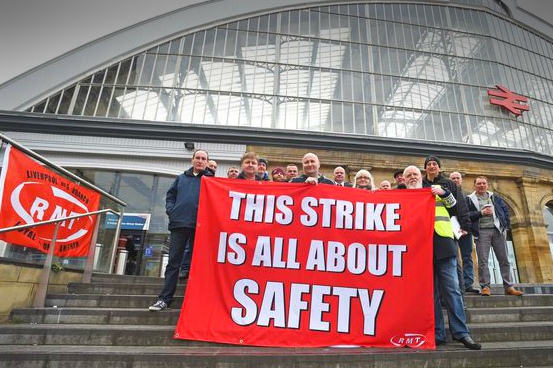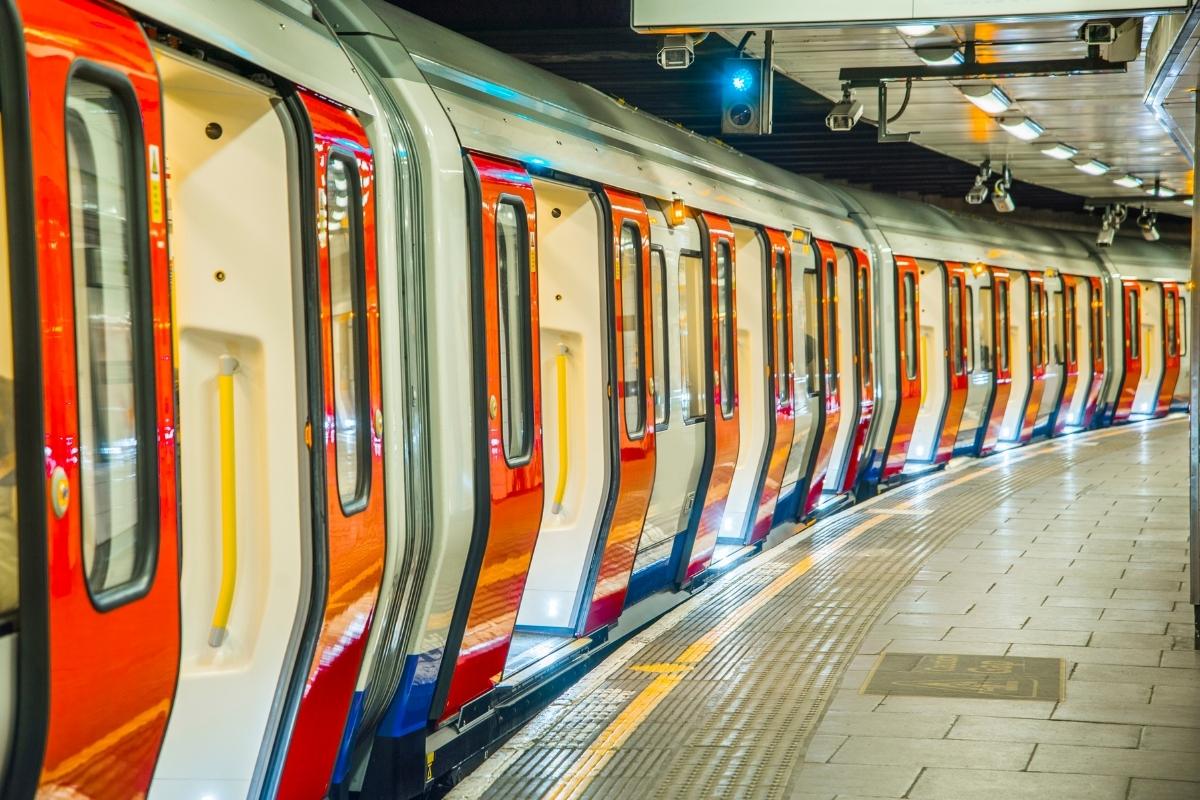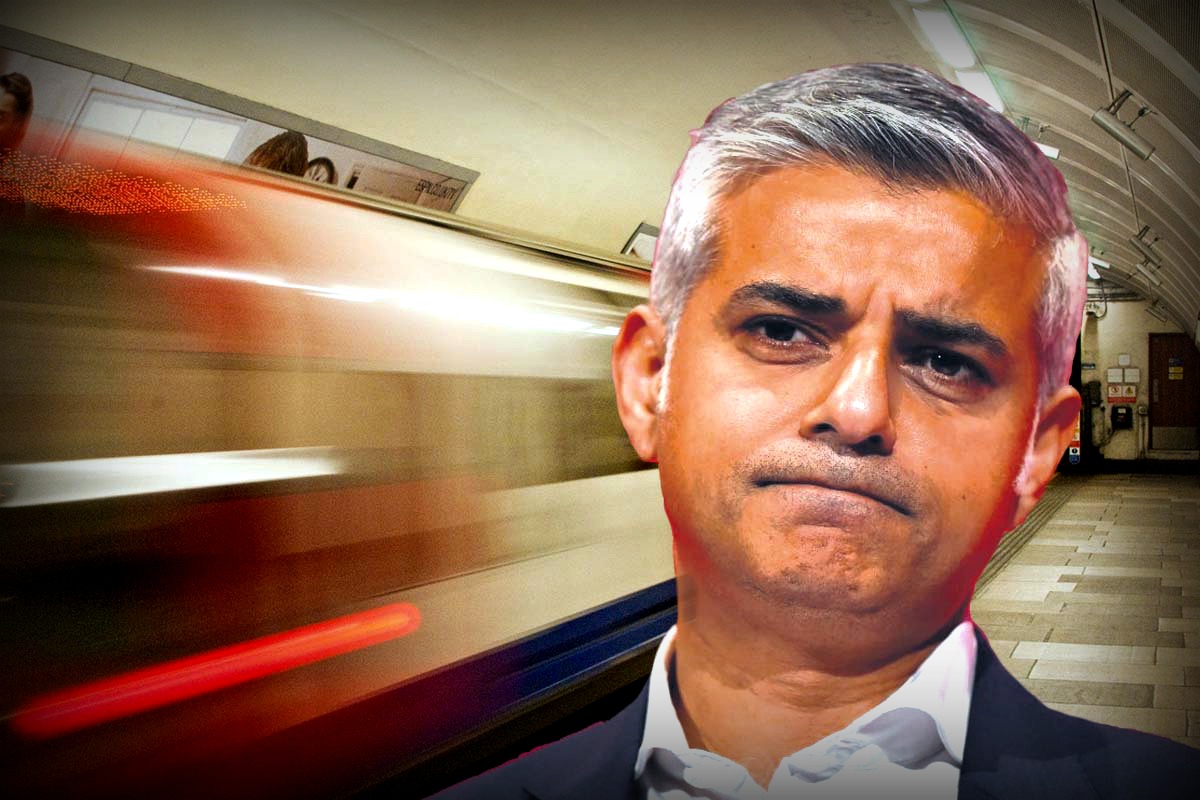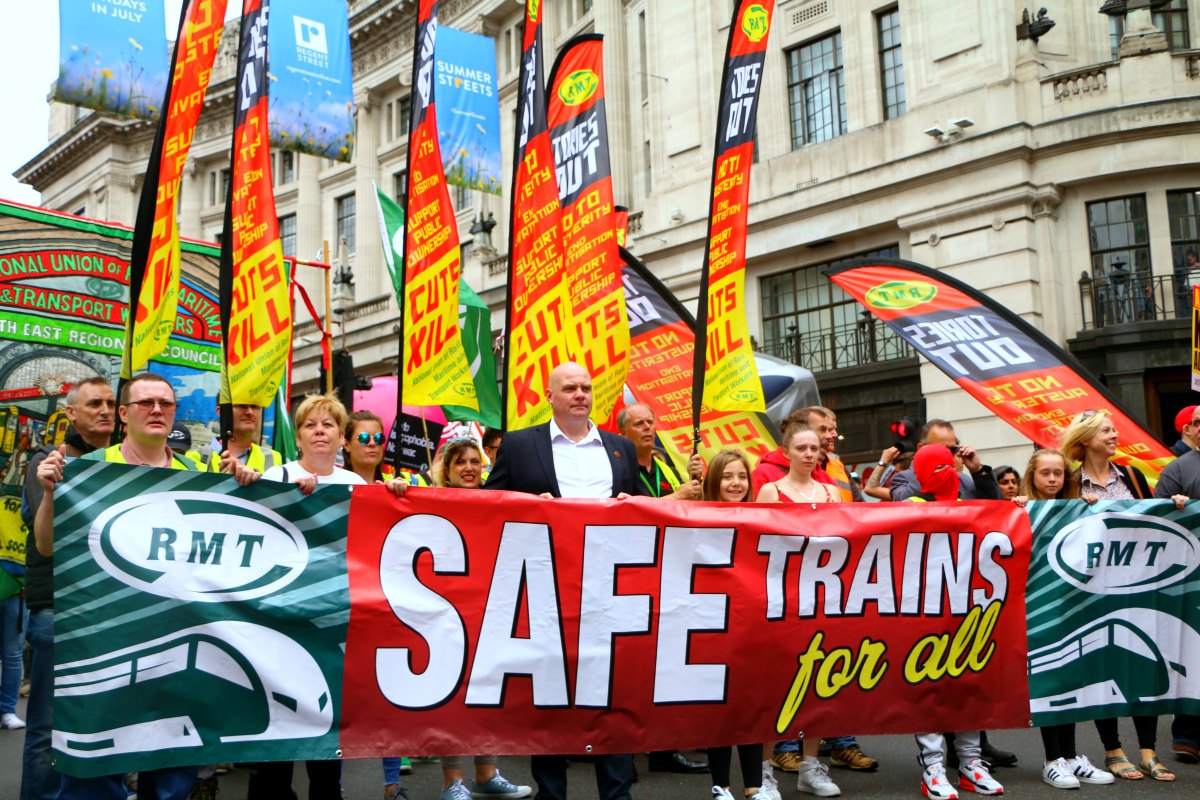RMT members on the London Underground are preparing to strike against Tory attacks on jobs and safety, in light of the reopening of the Night Tube. The whole of the labour movement must mobilise to fight the cuts to public transport.
As part of the austerity package forced on Transport for London (TfL) by the Department for Transport (DfT), the pay grade for Night Tube drivers was abolished. This resulted in 200 job cuts for dedicated night-time drivers.
These cuts now threaten to disrupt the lives of 3,000 London Underground (LU) workers as the Night Tube reopens. They are being asked to give up their nights and weekends in order to replace the lost workers.
This represents a brutal attack on the conditions and safety of both workers and passengers. The RMT has described the demands being placed on staff by the bosses as “unacceptable and intolerable”.
Safety and staffing
 The proposed changes will clearly be detrimental from a safety point of view. Tube drivers who must balance between night and day shifts will have worse reaction times – putting themselves and passengers at risk.
The proposed changes will clearly be detrimental from a safety point of view. Tube drivers who must balance between night and day shifts will have worse reaction times – putting themselves and passengers at risk.
But that is not the end of the matter. According to the RMT, the Night Tube was renowned as “a magnet for violent, abusive and anti-social behaviour” towards passengers and staff.
In response, the union campaigned hard for the introduction of visible staffing in stations, in order to make the Night Tube safe, in particular for women travelling late.
After the efforts made in this direction, the demands now being placed on Tube workers are a slap in the face. The Night Tube will be reopened, but without the necessary dedicated staff in place.
This is all the more cynical considering the bosses have hijacked concerns for women’s safety to push for the reopening – the very same bosses responsible for slashing the Night Tube grade, and for further cuts to staffing on the horizon.
Managed decline
 These attacks are only the start. The scheduled strike action is the firing shot in a wider fight for Transport for London (TfL), as workers – and working-class Londoners – resist attempts to make them pay for this crisis.
These attacks are only the start. The scheduled strike action is the firing shot in a wider fight for Transport for London (TfL), as workers – and working-class Londoners – resist attempts to make them pay for this crisis.
The last-minute ‘bailout’ of TfL by the DfT earlier this year – and the many strings attached that have come with it – was nothing more than a declaration of war by the Tories.
The government is more than aware that TfL workers have the power in their hands to bring the whole city to a virtual standstill. And unions such as the RMT have been prepared on multiple occasions to harness that power through militant strike action.
Boris Johnson is therefore looking to take transport workers head on, and bleed the system dry – regardless of the cost to commuters, and to the big businesses he aims to represent.
Already, TfL is severely underfunded. Before the May bailout, TfL subsisted entirely from fare prices, leading the system to near-bankruptcy. It was the only metropolitan public transport service not to receive central government funding in Western Europe.
But the £1.6bn bailout, far from being used to invest in London’s transport network, has only been used to force through cuts, including: attacks on free travel for children and the elderly, and on free bus travel during the pandemic; a pay freeze for workers, in a period of skyrocketing inflation (with RPI reaching 6% this week); rising fares; and, of course, the abolition of the Night Tube pay grade.
Now the government is refusing point-blank to negotiate a long-term package for TfL funding, as the deadline for such a deal approaches.
From the legal point of view of ‘balanced budgets’, this would mean TfL would have no option but to implement a ‘managed decline’ – i.e. brutal cuts. These are projected to slash 18% of bus services, meaning the withdrawal of a staggering 100 routes and the reduction of 200 more services; and to cut 9% of Tube services.
These planned attacks have rightly been described as “Tube carnage” by the RMT. And it is the workers, poor, and youth who depend on public transport the most who will suffer from it.
Passing on cuts
 Of course, the words ‘managed decline’ and ‘balanced budgets’ are not exactly music to the ears of London’s workers. This is the refrain of the Labour local and regional administrations, who seek to ‘manage’ the cuts imposed by the Tories, providing a ‘dented shield’ against the worst impacts of austerity.
Of course, the words ‘managed decline’ and ‘balanced budgets’ are not exactly music to the ears of London’s workers. This is the refrain of the Labour local and regional administrations, who seek to ‘manage’ the cuts imposed by the Tories, providing a ‘dented shield’ against the worst impacts of austerity.
Unfortunately, Labour Mayor Sadiq Khan’s opposition has been as reliable as the Circle Line. Rather than take a stance in defence of transport workers, and the millions of London passengers who need an affordable and quality transport service, Khan has laid his arms down, claiming that he has “no choice but to accept” the cuts.
But a choice exists: that of mobilising the labour movement across London in defence of TfL, in defiance of the cuts, and for a budget that provides the transport service that Londoners desperately need.
Following in the footsteps of George Lansbury and the Poplar Labour councillors who defied the Tory-imposed rate increases in 1921, the slogan of today’s Labour leaders should be: “Better to break the law than break the poor!”
For co-ordinated industrial action!
 In stark contrast to the Mayor, the RMT leadership has shown the militancy that is needed. General secretary Mick Lynch responded to the proposed Tory cuts saying:
In stark contrast to the Mayor, the RMT leadership has shown the militancy that is needed. General secretary Mick Lynch responded to the proposed Tory cuts saying:
“It’s clear from what we know that the government-driven wrecking ball would reduce transport in London to rubble. We will fight that assault with every tool at our disposal if ministers don’t wake up and see sense.
“We are calling on the Mayor and the people of London to stand with the transport workforce in a campaign to secure the funding our services need.”
The scheduled action on the Night Tube – from 27 November to 17 December – is the first shot in this battle. The whole of the labour movement must support striking RMT members in their struggle.
For the Night Tube to run safely and efficiently, with no detriment to the conditions of Tube workers, more staff must be taken on, with no loss of pay.
It is also welcome to see that the TUC, RMT, TSSA, Unite, ASLEF and International Transport Workers’ Federation have started a wider campaign to save London’s transport. This includes a petition and demonstration on Wednesday 1 December.
But this will need to be combined with co-ordinated, militant industrial action in the months ahead, if the campaign is to achieve its aims and force the government into giving the funding.
Workers’ control
Such action could be decisive. But this requires bold demands that go beyond calls for a new funding package and an end to cuts. The labour movement must fight for nothing short of workers’ control.
After all, if we want to save London’s transport, it will have to be us who decide its future by administering it ourselves.
Senior management at TfL are being offered a £12 million ‘cash for cuts’ bonus scheme in reward for successful implementation of the government’s cuts. The bosses will gladly sacrifice our transport system for their own gain.
We cannot rely on these fat-cat executives – nor trust the Tories – to implement a budget that will secure staff and passenger safety, and a quality London transport service.
Let us, transport workers, create our own budget, with a mass campaign across the labour movement to demand that the bosses and their political representatives pay up, in order to provide working-class Londoners with the public transport network that they need and deserve.






